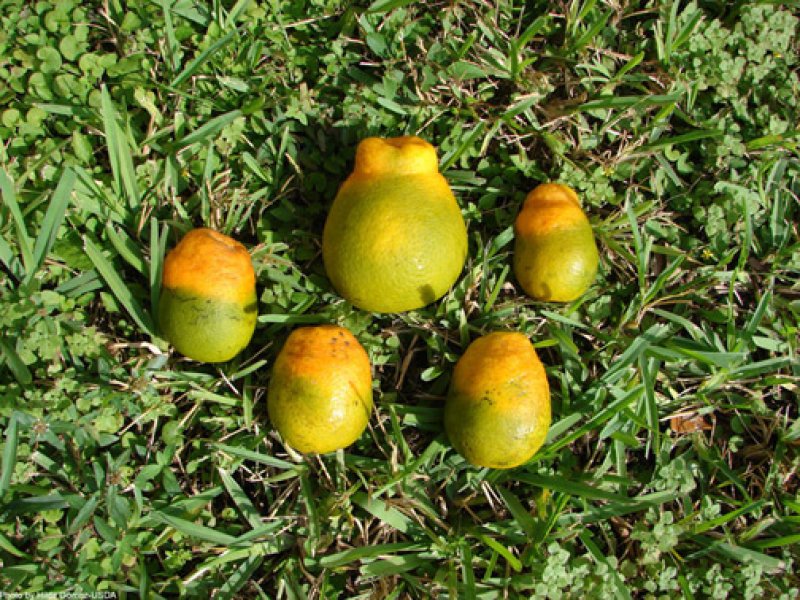The GLP aggregated and excerpted this blog/article to reflect the diversity of news, opinion and analysis.
Farmers in the major U.S. citrus-producing regions — Florida, California, Texas and Arizona, in particular — are facing a plague of epic proportions. Oranges and a range of other citrus fruits are being decimated by an incurable disease, a lethal, bacterial infection known as “citrus greening” or Huanglongbing, spread by a tiny insect, the Asian citrus psyllid.
. . .Researchers at the University of Florida’s Institute of Food and Agricultural Sciences have hit the trifecta; they’ve developed genetically engineered citrus trees that show not only resistance to greening but also to canker and black spot, two other perennial problems. . .
The “cure” developed by the University of Florida plant biologists is ingenious: They inserted a gene isolated from the Arabidopsis plant, a member of the mustard family, to create enhanced resistance to greening and reduced disease severity . . .
Nevertheless, it will be a decade or more before these disease-resistant trees have received regulatory approvals, been planted widely and are yielding fruit. Until then, there is only one effective treatment: a soil drench of neonicotinoid (“neonic”) pesticide. . .
Environmental activists have spent several years and many millions of dollars campaigning to ban neonics claiming that the insecticide is responsible for catastrophic honeybee population declines. . . . [But] large-scale field studies and real-world experience show that bees are not adversely affected by crops treated with neonics. It would be a shame to sacrifice an entire U.S. industry to already-disproven activist claims. . .
The long-term solution lies with genetic engineering. Meanwhile, if we don’t want to condemn the U.S. citrus industry to extinction, we need neonicotinoid pesticides.
Read full, original post: We have the scientific juice to save citrus































